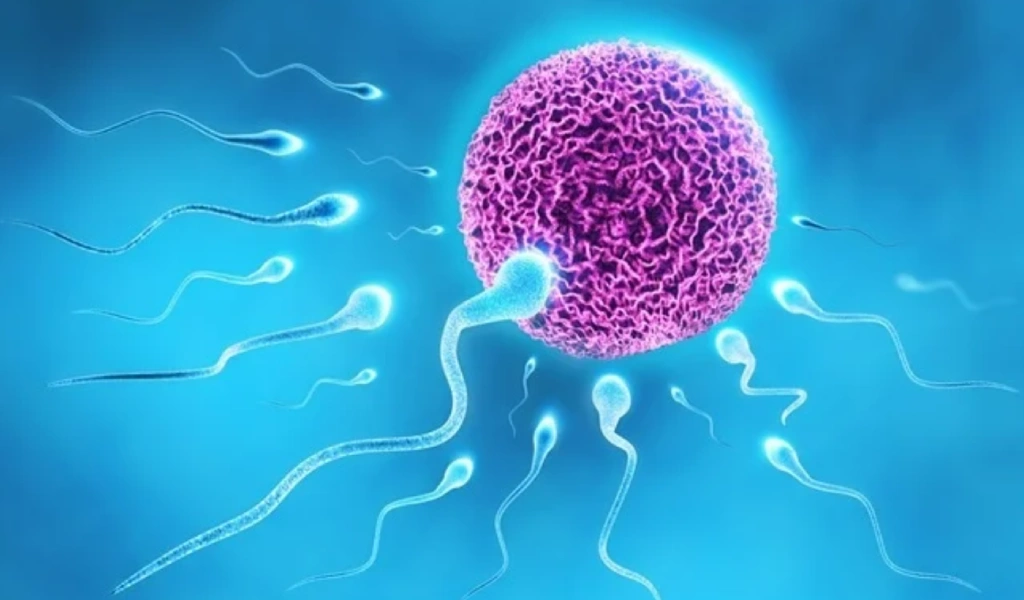The likelihood of becoming pregnant through IUI is influenced by various factors, one of which is the age of the mother.
Intrauterine insemination (IUI) pregnancy occurs when a fertility specialist inserts sperm into the uterus. This method is commonly utilized when a couple is unable to conceive naturally. During this procedure, the sperm is provided with assistance to reach the egg in the fallopian tube, improving mobility and count to enhance the likelihood of fertilization and pregnancy. Nonetheless, there are potential risks associated with this process. Gain further insights into IUI, including the procedure, advantages, and potential drawbacks in this article ‘Signs Of Pregnancy After Intrauterine Insemination’.
What Is IUI Pregnancy?
Women who have difficulty conceiving naturally have found Intrauterine Insemination (IUI) to be highly successful (1). This artificial insemination method, often combined with ovulation induction, can aid in achieving pregnancy quickly for those with a good ovarian reserve.
During an intrauterine insemination (IUI), sperm is carefully inserted into the uterus following a semen analysis to enhance the chances of fertilization and conception. This type of analysis is crucial for couples undergoing IUI as it helps to assess sperm count, motility, and morphology, which are all essential factors in the fertilization process. The main goal of IUI is to bring the sperm closer to the egg to facilitate interaction and increase the likelihood of successful conception. In cases where male infertility issues are present, sperm donation may be used during the IUI procedure. Despite advancements in technology, IUI still involves manual intervention and the use of specialized instruments, which can sometimes lead to certain symptoms following the procedure.
Fertility drugs like gonadotropin injections, which include follicle-stimulating hormone, may be given alone or with luteinizing hormone to help the ovaries create multiple follicles. Clomid or Clomiphene is another medication used to stimulate ovulation and address infertility by mimicking the effects of estrogen.
Symptoms Of IUI Pregnancy
If you are considering using the IUI method to conceive, it is advisable to be familiar with these symptoms ahead of time to ensure you are well-equipped and avoid any surprises.
Below are some common signs of pregnancy that may arise approximately two weeks after undergoing an IUI procedure.
1. Implantation bleeding
Implantation bleeding is a phenomenon that occurs when the embryo attaches to the uterine lining.
- Implantation of the fertilized egg may result in bleeding similar to menstrual spotting.
- Not all cases of implantation will necessarily involve bleeding.
- Bleeding may become visible around two weeks after the implantation procedure.
- The occurrence of bleeding is a natural part of the process of becoming pregnant.
- Bleeding similar to implantation bleeding could occur 6 to 12 days after conception.
- Minor cramping may also be experienced during this time.
2. Menstrual delay
During a regular pregnancy, it is common for your menstrual cycle to be delayed due to stress and various hormonal fluctuations affecting your body.
- If your monthly menstrual cycle is irregular, it could mean you are pregnant.
- It is advisable to seek advice from a medical professional on this matter.
- Even if you are pregnant, you might still experience light bleeding and discomfort.
- It is important to talk to your gynecologist about any concerns or questions you may have.
3. Tenderness in breasts
After the procedure, your breasts may be sensitive, tender, and sore to the touch.
- If the sensation persists after a late menstrual cycle, it is advisable to conduct a pregnancy test to determine if you are pregnant.
- Sore breasts can be a common symptom during regular periods.
4. Weakness and fatigue
After artificial insemination, your body may respond in various ways or show no response at all.
- Feeling stressed, weak, and fatigued is completely normal as you experience anxiety over time.
- The added hormonal changes contribute to these feelings of stress.
- Increased levels of progesterone may lead to constant sleepiness and fatigue.
- Your body also expends a lot of energy to produce more blood.
5. Nausea
You may experience similar nausea to what is typically felt during the morning sickness stage of a regular pregnancy.
- Nausea occurs when higher levels of the hormone estrogen drain your stomach.
- You may experience nausea throughout the day, especially when exposed to unpleasant smells that may trigger vomiting.
- Conversely, you may not experience any nausea at all.
6. Food cravings and aversions
Similar to a typical pregnancy, you may experience unusual aversions or strong desires for specific types of food.
- Shifting hormones are also responsible for this phenomenon.
- Certain smells and the way food looks can often induce feelings of nausea.
- An increased preference for specific foods may also occur suddenly.
Possible Risks of IUI Pregnancy
Although IUI is typically regarded as a safe and less intrusive fertility treatment compared to IVF, it may pose certain risks. A comprehensive analysis of various studies revealed a higher incidence of preeclampsia in pregnancies conceived through donor sperm insemination compared to those conceived using partner sperm insemination.
In these situations, there is also a greater risk of hypertensive disorders of pregnancy, which is 1.55 times higher. The use of fertility drugs to encourage ovulation can lead to an increased likelihood of multiple births. Consequently, there is a slightly elevated risk of premature labor and lower birth weight for the infants.
IUI benefits couples dealing with unexplained infertility, cervical mucus issues, endometriosis, polycystic ovary syndrome, or ovarian cysts. The symptoms of pregnancy after IUI are comparable to a regular pregnancy, but not everyone may experience them all. Typical signs include implantation bleeding, breast tenderness, fatigue, and nausea. Before starting IUI, it is beneficial to be aware of these symptoms for better preparedness. If any unusual symptoms arise, seek advice from your doctor to prevent any potential pregnancy complications.
Key Pointers of ‘Signs Of Pregnancy After Intrauterine Insemination’
- Intrauterine Insemination is a medical procedure aimed at increasing the likelihood of conception by introducing sperm directly into the uterine cavity.
- The success rate of IUI can be influenced by various factors such as the mother’s age and health status, as well as the use of medications.
- Some common early signs of pregnancy following an IUI procedure may include tiredness, queasiness, breast sensitivity, and a skipped menstrual cycle.
- Visiting a doctor and taking a pregnancy test are necessary steps to confirm a pregnancy after undergoing an IUI procedure.


















